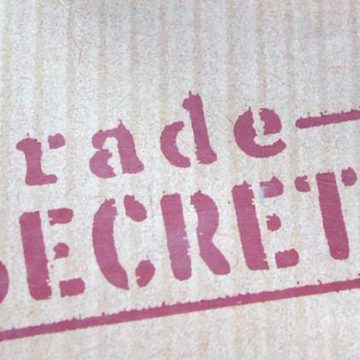In 2022 Canada enacted a new form of real property tax known as the Underused Housing Tax (“UHT”). Generally, it is an annual tax on the value of vacant and underused residential property in Canada owned by a non-Canadian resident or citizen (though, in some cases, Canadian residents and citizens may be subject to the tax). The annual tax is 1% of the value of the property.
Before getting into specifics, we must stress that we are not licensed to practice law or accounting in Canada and therefore nothing in this article is intended to be, and shall not be taken to be, legal or tax advice.
Breaking Down the Underused Housing Tax
Let’s start with some key definitions (or parts thereof) under the UHT Act:
Owner
A person that is identified as an owner in respect of the residential property under the land registration system or other similar system applicable where the residential property is located, or that could reasonably be considered to be an owner in respect of the residential property based on such a system, and including:
- an individual
- an entity or trust
- a life tenant under a life estate
- a life lease holder
- a tenant under a long-term lease granting continuous possession of the land on which the residential property is situated
Excluded Owner
A person (other than a “prescribed” person) that is:
- an individual who is a citizen or permanent resident of Canada, except to the extent that the individual is an owner of the residential property in their capacity as a trustee of a trust (other than a personal representative in respect of a deceased individual) or as a partner of a partnership
- a registered charity for Canadian income tax purposes
- a corporation incorporated under the laws of Canada or a province whose shares are listed on a stock exchange in Canada
- municipalities or corporations owned by municipalities
- Her Majesty and agents of Her Majesty (i.e., The Queen of England) (the UHT Act was passed before Queen Elizabeth II died in September 2022)
Prescribed
This essentially means “as set forth in the regulations under the UHT Act.” For example, the regulations may prescribe who is an owner, or who is an excluded owner, or whether certain property is or is not “residential property” for purposes of the UHT Act
Residential Property
Property (other than prescribed property) that is situated in Canada and is:
- a detached house or similar building, containing not more than three dwelling units, together with that proportion of the appurtenances to the building and the land subjacent or immediately contiguous to the building that is reasonably necessary for its use and enjoyment as a place of residence for individuals; or
- a part of a building that is a semi-detached house, rowhouse unit, residential condominium unit or other similar premises that is, or is intended to be, a separate parcel or other division of real or immovable property owned, or intended to be owned, apart from any other unit in the building together with that proportion of any common areas and other appurtenances to the building and the land subjacent or immediately contiguous to the building that is attributable to the house, unit or premises and that is reasonably necessary for its use and enjoyment as a place of residence for individuals
Taxable value
With respect to the property for a calendar year, an amount that is:
- a prescribed amount; or
- if there is no prescribed amount, the greater of:
- the value established with respect to the property by an authority that has the power by or under an Act of Parliament or the legislature of a province to establish the assessed value of real or immovable property for the purpose of computing a property tax (essentially, County Auditors, to make a U.S. comparison), and
- the property’s most recent sale price on or before December 31 of the calendar year
However, an owner may elect to use the property’s fair market value at any time on or after January 1 of the calendar year and on or before April 30 of the following calendar year. It is critical to note that an appraisal must support the fair market value.
Underused Housing Tax Exemptions
There are several exemptions applicable to the UHT. Some, which apply on a year-to-year basis, include:
- property that is newly constructed
- property that is not suitable to be lived in year-round or seasonally inaccessible because public access is not maintained year-round
- property that is uninhabitable for at least 60 consecutive days because of a disaster or hazardous conditions, and the same disaster or hazardous conditions did not apply in the prior calendar year
- property that is under renovations for a period of at least 120 consecutive days in the calendar year if any work in relation to the renovation is carried on without unreasonable delay, and this same exemption did not apply in any of the nine prior calendar years
- vacation property located in an eligible area of Canada and used by the owner or their spouse for at least 28 days in the calendar year (this exemption only applies to owners who are individuals)
- the subject person becomes an owner of the property in the calendar year and was never an owner of the property in the prior nine calendar years
- the individual owner died during the calendar year or the prior calendar year
- the subject person is the personal representative in respect of a deceased individual who was an owner of the residential property during the calendar year or the prior calendar year, and the person was not otherwise an owner of the residential property in either of those calendar years
- property that is the primary place of residence for the owner or their spouse or common law partner, or for their child who is attending a designated learning institution
- the property is occupied at least 180 days in the calendar year (including by lessees)
When is my UHT Return Due?
The UHT return, and any tax owing, is due by April 30 each year. Owners who are individuals who fail to file are subject to a $5,000 penalty, and entities who fail to file are subject to a $10,000 penalty! Making matters more complicated, in order to file a UHT return, an individual, entity, trust or estate must have a Canada-issued taxpayer identification number.
How can we help?
It’s essential for our readers to understand that we are not licensed to practice law or accounting in Canada, and therefore we cannot and do not give tax or legal advice about the UHT. Nothing in this article is intended to be, and shall not be taken to be, legal, accounting, or tax advice. This discussion summarizes some important elements of the UHT Act, but does not provide the whole picture.
If you have any general questions about the UHT or would like a referral to Canadian legal counsel, please get in touch with your Carlile Patchen & Murphy LLP attorney. If you want to learn more about the UHT, you can access Canada’s official online summary of the UHT, found at:
https://www.canada.ca/en/services/taxes/excise-taxes-duties-and-levies/underused-housing-tax.html





0 Comments